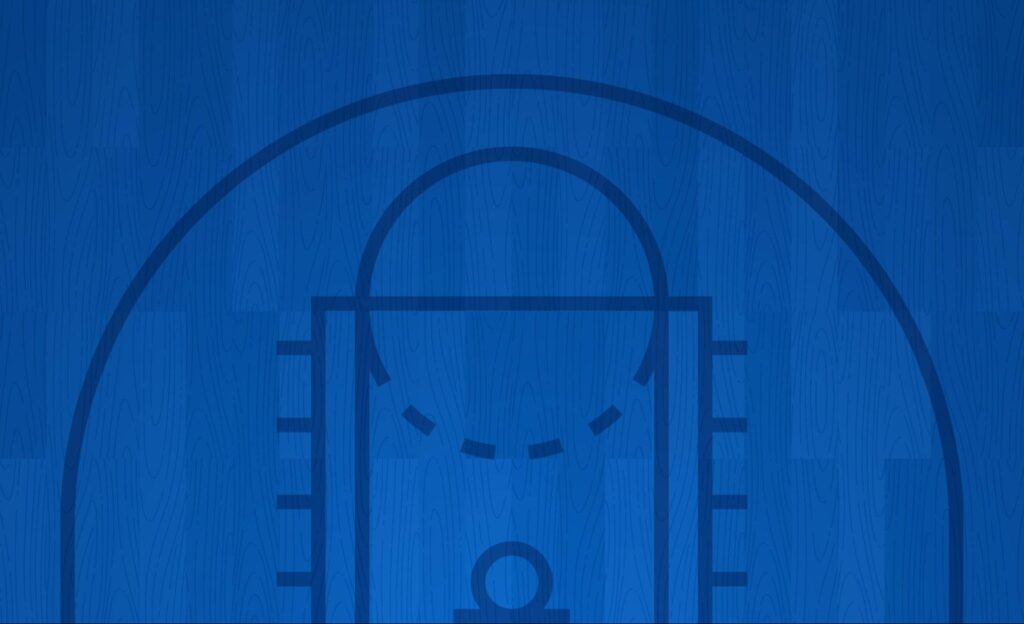
Installing a new gym floor? Then it’s best to have all your options lined up. When it comes to choosing wood floors vs. synthetic floors for your gym, there are several things to take into consideration. From cost to aesthetics, here is everything you need to make the right decision for your flooring needs from the team of experts at Sports Floors, Inc.
Cost of Installation
Perhaps one of the most important considerations when purchasing a new sports floor is the installation cost. Maple wood flooring is a more expensive material than synthetic hardwood, which drives up the installation cost for traditional wood floors.
Up front, synthetic floors are less expensive than wood floors. However, you may also want to consider the overall cost in addition to the initial investment. As you’ll learn, for example, wood floors last longer than synthetic hardwood floors, which could offset the benefit of a lower cost on the front end.
Use-Value
Aside from installation costs, one of the most common considerations clients prioritize is the uses the court will be intended for. Depending on the games, practices, or events you’ll be hosting in the gym, either wood or synthetic floors may work better for your needs.
For example, a solid, durable maple wood floor is probably your best bet for high-traffic areas used mainly for sporting events, like a basketball court. On the other hand, vulcanized rubber flooring may be best for weight rooms, indoor tracks, or multi-purpose rooms.
Durability
Now that you know how you’ll be using your sports floor, you can get a better idea of the type of durable flooring you’ll need. If your sports floor is used for sports only, a maple wood floor will give you the best results. This is because players will likely be wearing soft-soled shoes that won’t wear the floor too quickly, giving you the perks of a wood floor without the risk of harming it prematurely.
However, if you intend to use the floor for multiple purposes, like school lunches, and other events in addition to sports, you’ll want to go with a synthetic floor. Synthetic floors hold up better to scuffing, so with so many types of shoes in a high-traffic area like this, you’ll want to go with this option.
To sum up: wood floors provide the best overall durability. Synthetic floors provide the best durability for multipurpose use.
Aesthetics
Although aesthetics might not be the first thing that comes to mind when deciding which type of sports floor to purchase, it makes a huge difference for your team and fans. It can be very hard to beat the traditional gleam of a wooden sports floor – but that isn’t to say synthetic flooring can’t also look great.
Depending on your needs and how your facility will make use of the floor, you can access different aesthetic options for wood or synthetic flooring. Just be sure to keep this in mind when making your choice.
Maintenance
Another huge consideration when choosing a sports floor is how it will be maintained over the course of its lifetime. Each option has a completely different set of needs.
Typically, synthetic flooring is easier to maintain over time. In general, you can expect to clean the floor with an auto-scrubber and manufacturer-approved cleaning product on a regular basis, depending on how much traffic the floor gets. You may also have to recoat the floor when wear and tear begin to show around the highest-traffic areas of the court.
Wood may require a bit more maintenance than synthetic floors. You’ll need to ensure a consistent range of humidity throughout the year to avoid cupping or shrinkage of the wood floor. Based on facility use, it is recommended to screen and recoat your floors once or even twice a year to maintain the appearance and performance of your floor.
Life Span
With different materials and maintenance requirements, it’s probably no surprise that wood and synthetic floors have different life spans. You can expect a wood floor to last up to 75 years with regular maintenance and protection. While synthetic floors also last a long time, this material has a shorter lifespan – around 30 years.
Call the Experts at Sports Floors, Inc.
Phew – that was a lot of variables! It can be difficult to weigh the pros and cons of each type of sports floor on your own, which is why Sports Floors, Inc. is here to help. With years of experience installing all types of flooring across the country, we have the expertise to guide you and your team in the right direction on your next installation. Call our team to learn more about how we can help today!
